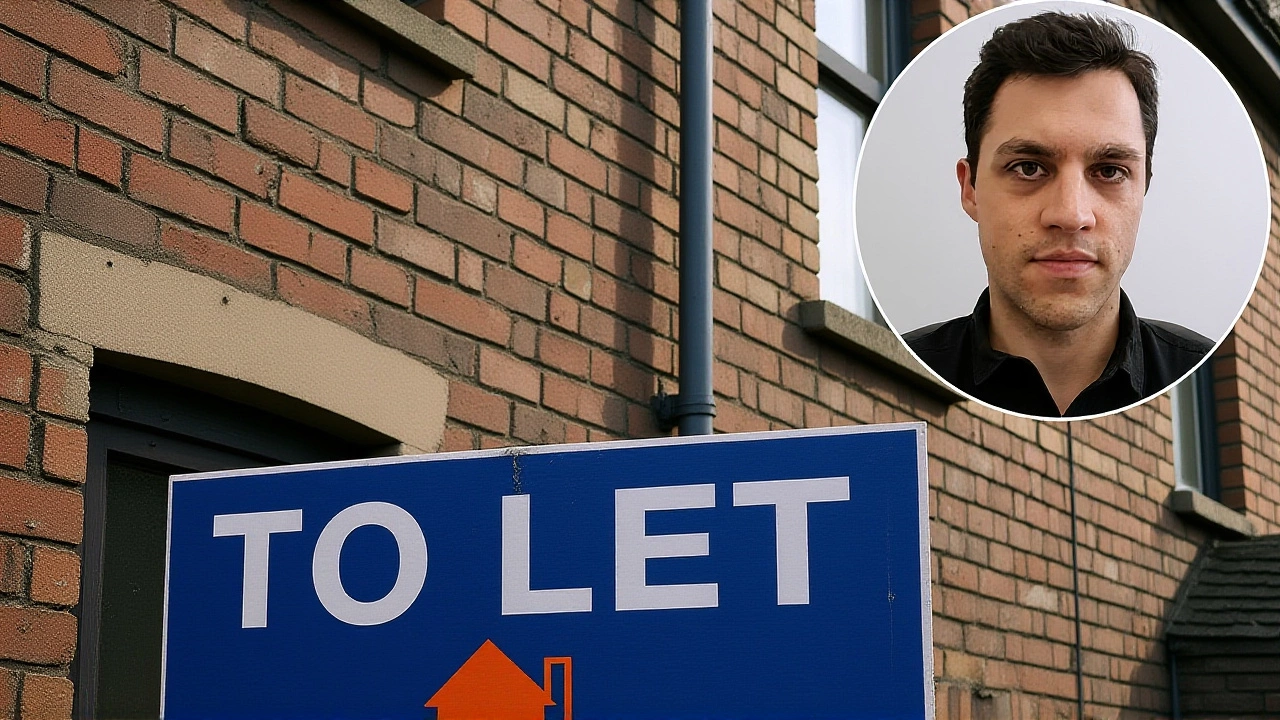The Renters' Rights Act has officially become law after receiving Royal Assent from King Charles III on October 28, 2025 — ending a 19-month legislative journey that began with a Conservative draft and accelerated under Labour’s decisive parliamentary majority. For the first time in decades, private renters in England won’t face eviction without cause. Landlords can no longer use Section 21 — the so-called "no-fault" eviction clause — after October 28, 2026. The change, long demanded by tenant groups like Generation Rent and the London Renters Union, marks the most significant overhaul of rental law since the 1980s. Housing Secretary Steve Reed, MP for Croydon North, confirmed on BBC Radio 4 that a detailed implementation timetable will be published imminently, giving landlords and agents a final window to adapt.
What’s Changing for Tenants and Landlords?
The Act scrapes fixed-term Assured Shorthold Tenancies (ASTs) entirely. From now on, every new tenancy is a rolling periodic agreement — meaning tenants can leave with just one month’s notice. Landlords, however, must now prove a valid reason to evict. That includes documented rent arrears of at least two months (up from eight weeks), verified anti-social behavior reported by local councils, or a landlord’s genuine intention to move back in — provided they give six months’ notice. Selling the property is also a ground for possession, but only after formal notice and evidence of a signed contract with a buyer.
And it’s not just about evictions. The Act introduces a Private Rental Sector Landlord Ombudsman, launching by Q2 2026. Tenants and landlords can now resolve disputes under £25,000 without court fees or years of delays. The ombudsman must deliver a decision within 45 days — a radical shift from the current system where legal battles often drag on for over a year.
The Landlord Database and Decent Homes Standard
By January 1, 2027, every one of England’s 2.3 million private landlords must register with a unique identifier in a new government database. They’ll be required to disclose rent levels, property conditions, and their own identity — a move designed to crack down on rogue operators and make it easier for tenants to verify who they’re renting from. The Department for Levelling Up, Housing and Communities estimates this will improve compliance by 40% within three years.
Meanwhile, the Decent Homes Standard is now legally binding. By December 31, 2028, all rental properties must meet EPC Band C energy efficiency ratings. Landlords must install working smoke and carbon monoxide alarms in every room. And crucially, any Category 1 hazards under the Housing Health and Safety Rating System (HHSRS) must be fixed within 21 days — Category 2 within 28. Failure to comply could trigger fines or even criminal prosecution.
‘Rental Bidding’ Is Banned — But Will It Help Tenants?
One of the most visible changes is the ban on "rental bidding." In London and other hot markets, it was common for agents to advertise a property at £1,200, then invite tenants to bid higher. The Lettings Agent Registration Scheme found 68% of London listings used this tactic in 2024. Under the new law, landlords can’t accept offers above the advertised price. But as The Independent’s housing correspondent Charlotte Edwards pointed out, many landlords may simply raise their initial asking rent to compensate. "It’s not a price cap," she noted. "It’s a transparency rule — and it might just make rents look higher from the start."
Still, the law changes the power dynamic. Tenants can now walk away from a bidding war without fear of being outbid. And agents who violate the rule face fines and potential license suspension under the new Lettings Agent Registration Scheme.

What Landlords Need to Do Now
Advice from property experts like Letting a Property is clear: document everything. Keep dated photos of property conditions. Get signed check-in and check-out reports. Log every maintenance request and reply. If you’re planning to sell or move back in, start gathering proof now — bank statements, mortgage letters, or even a signed sale contract. Without a paper trail, your possession claim could be dismissed.
"The game has changed," said Ben Beadle, Chief Executive of the National Residential Landlords Association. "Landlords who treated renting as a passive income stream are now running a regulated service. If you’re not prepared, you’re not just risking fines — you’re risking your entire business model."
Timeline: When Does It All Happen?
- October 28, 2025: Renters’ Rights Act receives Royal Assent.
- October 28, 2026: Section 21 evictions fully abolished.
- January 1, 2027: Landlord database goes live; all landlords must register.
- Q2 2026: Landlord ombudsman becomes operational.
- October 1, 2026: New standard tenancy agreement mandatory for all new lets.
- December 31, 2028: All properties must meet EPC Band C standard.
Minister Rachel Maclean confirmed during a parliamentary hearing on October 25, 2025, that all secondary legislation must be finalized by October 28, 2026 — exactly one year after Royal Assent. The phased rollout is deliberate: the government wants landlords to adapt, not panic.

Who’s Affected — And How?
The National Residential Landlords Association estimates 4.8 million households — 19% of all English homes — are in the private rented sector. In London, the figure jumps to 38%, according to the Office for National Statistics’s 2024 Annual Population Survey. That means nearly two in five Londoners now live under a new legal framework.
For tenants, the change is transformative. No more sudden notices. No more fear of being pushed out because a landlord wants to sell or "get a higher rent." For landlords, it’s a reckoning. The era of easy evictions and minimal accountability is over. The question isn’t whether the system will work — it’s whether enough landlords will adapt before the clock runs out.
Frequently Asked Questions
Can my landlord still evict me if I don’t pay rent?
Yes — but only if you’re at least two months behind on rent, and your landlord follows the new legal process. They must provide documented proof of arrears and apply for possession through the courts or the new ombudsman. The old system of quick, no-fault evictions is gone. This gives tenants more time to negotiate payment plans or seek housing support before facing removal.
What happens if my landlord doesn’t register with the new database?
Landlords who fail to register by January 1, 2027, face fines of up to £30,000 and may be barred from renting out property until they comply. The database will be publicly searchable, so tenants can verify their landlord’s legitimacy. Unregistered landlords also lose the right to use Section 8 possession grounds — meaning they can’t even evict for rent arrears unless they’re registered.
Do I have to upgrade my property to EPC Band C immediately?
No — you have until December 31, 2028, to meet the EPC Band C requirement. But if you’re planning to renew a tenancy after October 1, 2026, the property must already meet the standard. Many landlords are already investing in insulation and efficient boilers to avoid last-minute costs. Local councils will offer grants and low-interest loans to help with upgrades.
Can I still raise rent during a tenancy?
Yes — but only once a year and with at least two months’ notice using a Section 13 notice. You can’t use rent increases as a way to pressure tenants out. The new standard tenancy agreement requires rent changes to be clearly documented and justified. Tenants can challenge excessive increases through the ombudsman if they believe the rise is unreasonable compared to local market rates.
What if my landlord refuses to fix a safety hazard?
You can report Category 1 hazards (like gas leaks or electrical faults) directly to your local council’s environmental health team. They must inspect within 14 days and can issue enforcement notices. If the landlord still doesn’t act, the council can carry out repairs and bill the landlord — or even prosecute. Under the new Act, ignoring hazards is no longer a civil matter — it’s a criminal offense.
How does this affect buy-to-let investors?
Investors face tighter regulations, but the core model still works. The key shift is from short-term, high-turnover renting to long-term, quality-focused tenancies. Those who invest in property maintenance, tenant screening, and compliance are likely to see more stable returns. Those treating rentals as a speculative asset may find profits squeezed — especially in high-demand areas where rent controls and transparency reduce pricing flexibility.
